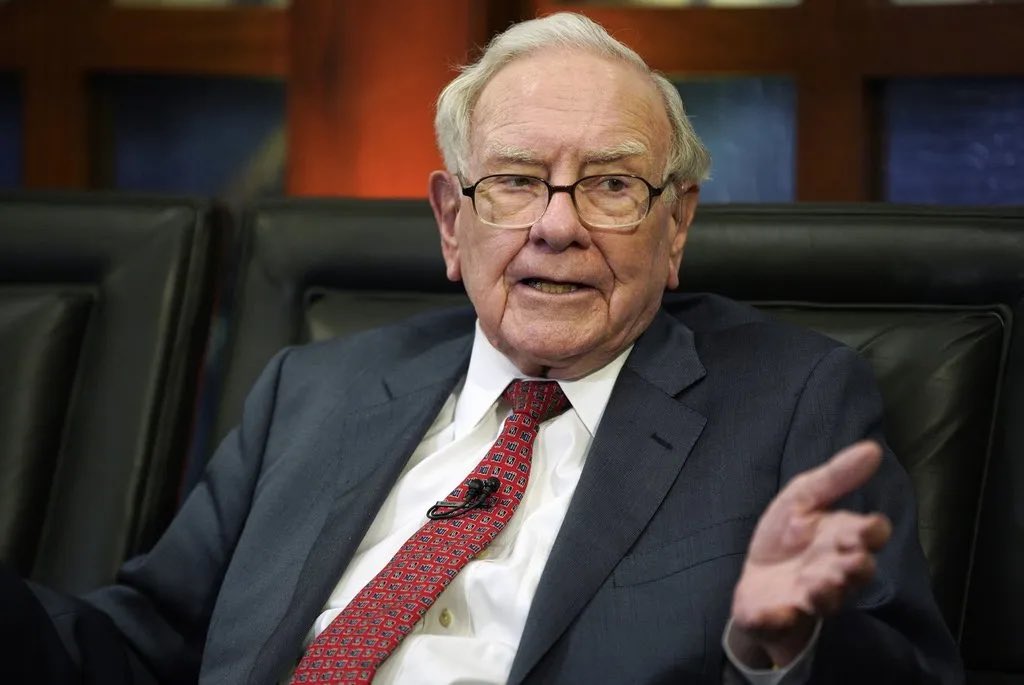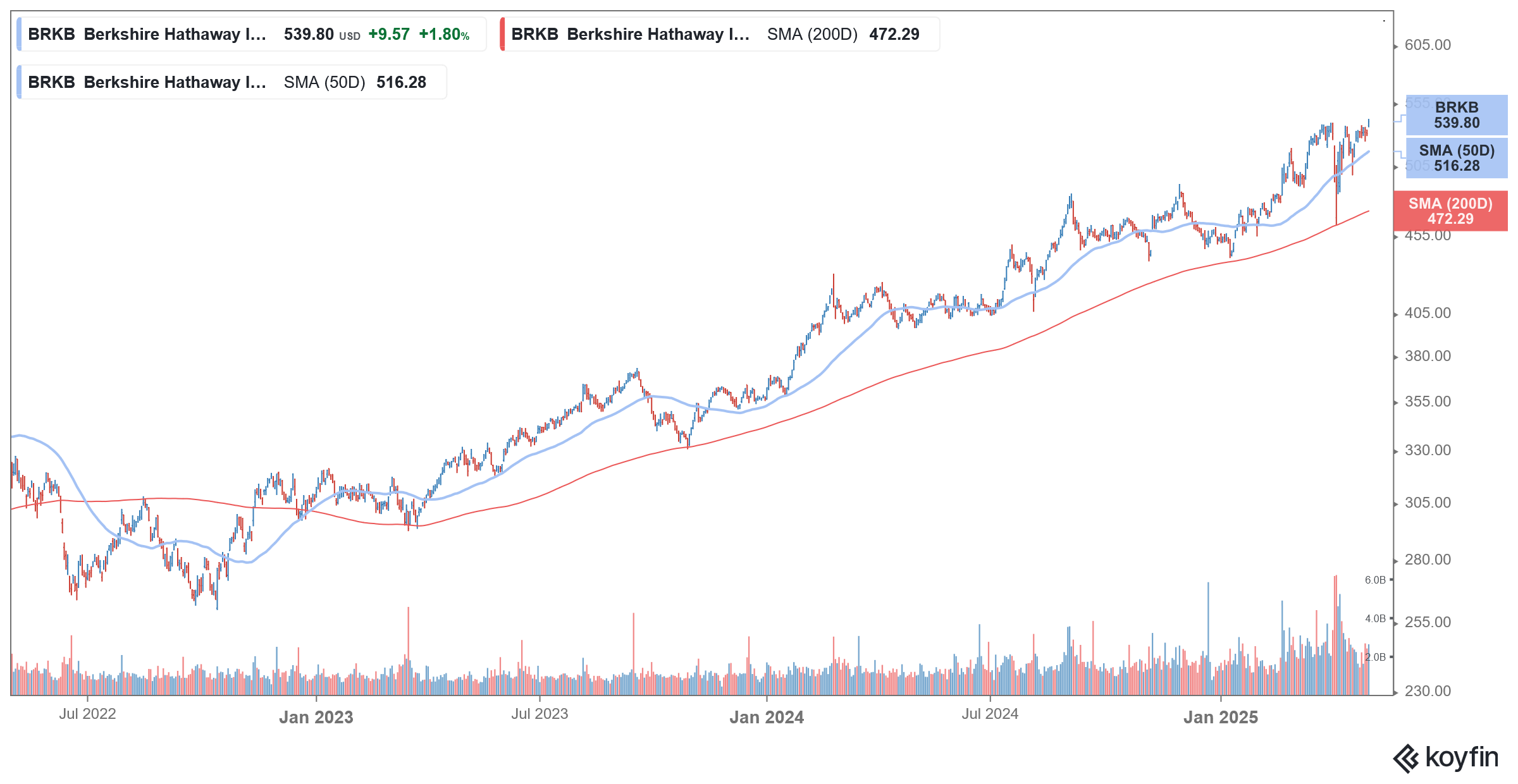
At Berkshire Hathaway’s annual meeting over the weekend, chairman Warren Buffett warned that US debt has reached unsustainable levels. He joins the long and growing list of prominent people who have cautioned on the alarming debt situation.
“We are operating at a fiscal deficit now that is unsustainable over a very long period of time. We don’t know whether that means two years or 20 years, because there’s never been a country like the United States, but this is something that can’t go on forever,” said Buffett at the meeting, where, among others, he announced his retirement from the conglomerate.
Warren Buffett warns about “unsustainable” debt levels
He added, “And it has the aspect to it that it gets uncontrollable to a certain point that essentially you just give up on it. Paul Volcker kept that from happening in the United States, but we came close. We’ve come close multiple times, and we still have very substantial inflation in the United States, but it has never been runaway yet. And that’s not something we want to try and experiment with because it feeds on itself.”
The US budget deficit has widened
In the first six months of the current fiscal year, the US government’s budget deficit rose to $1.3 trillion, which is the second highest in history for the period. The only time the deficit was higher was in the fiscal year 2021, when the deficit jumped to $1.7 trillion in the first six months due to higher spending during the COVID-19 pandemic
The total government debt has surged to $36.22 trillion and has long surpassed the national GDP. The rising debt pile has led to a massive increase in interest expense, and the Treasury Department estimates that it will spend $1.2 trillion on interest payments this year.
Notably, the US fiscal deficit hit a record high of $3.13 trillion in the fiscal year 2021. The surge was understandable as the economy needed support during the pandemic. The deficit came down to $2.77 trillion in the fiscal year 2022. It fell further to $1.38 trillion in the next fiscal year, and while it was much below the previous year, it was significantly higher than in pre-pandemic times, when the deficit was contained below $1 trillion. However, in the fiscal year 2024, the budget deficit increased to $1.8 trillion.
Warren Buffett admits that cutting government expenses is a difficult job
Many fear that the fiscal path that the world’s biggest economy has been pursuing since the COVID-19 pandemic is unsustainable, and the country needs to bring down its burgeoning fiscal deficit that has surpassed its national GDP.
Notably, President Trump formed Department of Government Efficiency (DOGE) headed by Elon Musk to advise him on cutting government spending. While previously, Musk touted that DOGE could cut spending by almost $1 trillion, the White House says that it is targeting annual savings of $150 billion.
In response to a question on DOGE, which has fired several federal government employees, Buffett said, “I think that bureaucracy is dangerously contagious, and it really doesn’t have any checks on it.”
He added, “I wouldn’t want the job of trying to correct what’s going on in revenue and expenditures of the United States with roughly a 7% gap, when probably a 3% gap is sustainable.”
“I think it’s a job I don’t want, but it’s a job I think should be done, and Congress does not seem good at doing it,” added the “Oracle of Omaha.”
Powell believes cutting discretionary spending won’t help much
Meanwhile, Fed chair Jerome Powell, whom Buffett has praised on previous occasions, believes that politicians were taking the wrong approach by targeting discretionary spending, which he said not only contributes a small percentage of total spending but also its share in total spending has been gradually falling.
“The largest and fastest-growing portions are Medicare, Medicaid, Social Security, and now interest payments, so this is indeed where efforts need to be focused, and these issues can only be resolved on a bipartisan basis; neither side can find a solution without the involvement of both, so this is crucial,” said Powell while speaking at the Economic Club of Chicago last month.
Buffett was a net seller of shares in Q1
Meanwhile, Buffett was a net seller of shares in Q1 as the conglomerate sold shares worth $4.7 billion while buying only shares worth $3.2 billion. It was the tenth consecutive quarter when Berkshire sold more shares than it bought. The conglomerate has also not been repurchasing shares for the last two quarters.
It however continues to generate cash, thanks to the strong performance of its many subsidiaries. Moreover, it earns billions of dollars in dividends every quarter which helped catapult its cash pile to $347.7 billion, almost all of which is invested in US treasuries.
Berkshire owns 5.1% of all outstanding treasury bills
To gauge the size of that cash pile, consider the fact that Berkshire now owns 5.1% of all outstanding U.S. Treasury bills.
Responding to a question over the burgeoning cash pile, Buffett said, “We have made a lot of money by not wanting to be fully invested at all times.” He also weighed in on the recent volatility in markets and said, “What has happened in the last 30, 45 days … is really nothing.”
Buffett said that Berkshire “came pretty close to spending $10 billion,” for the deal did not go through. He added, “I mean, those decisions are not tough to make when something is offered that makes sense to us and that we understand and offers good value.”
The nonagenarian however dismissed the idea that he is stockpiling the cash for his successor Greg Abel and joked, “I wouldn’t do anything nearly so noble.”
In this year’s annual letter, Buffett had said, “Berkshire shareholders can rest assured that we will forever deploy a substantial majority of their money in equities – mostly American equities although many of these will have international operations of significance.”
“Berkshire will never prefer ownership of cash-equivalent assets over the ownership of good businesses, whether controlled or only partially owned,” added Buffett in the letter.


Question & Answers (0)